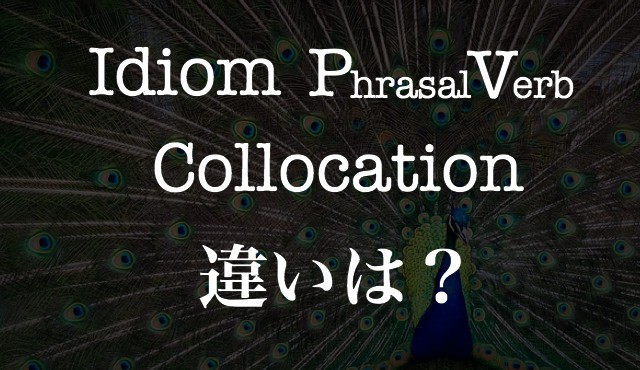(当シリーズは、妥当性のある完成した言語学の理論やその研究等とは一切関係なく、単に「定義に書かれている違い」からポイントをチェックしつつ、個人的な図解をシェアするものです。故に、言い切りに近い形は「正しい」ことではなく「自分の中で確信している度合いが高い」ことを意味します。あしからず。主に「Cambridge Dictionary」「Merriam-Webster.com Dictionary」「ONLINE ETYMOLOGY DICTIONARY」を参考に作成しております。辞書からの引用の詳細は、記事の最後にあります。)
HACKengの「イメージ・イラストで覚える英単語・フレーズ」シリーズ。
今回は「イディオム・句動詞・コロケーション」です。
日本語訳の丸暗記では、いつまで経っても
英語ができるようにはなりません。
イメージを掴みましょう。
(※スマホの人は右下の「INFO」から、いつでも目次が見れます)
イディオムが英語ペラペラへの鍵?
英語がペラペラになるためには、イディオムが鍵となる!
なんて文句を、きっとあなたも聞いたことがあるでしょう。
まあ言わんとすることには同意なんですが、どうも「句動詞・コロケーション・単語連結」みたいな概念もある中、全部まとめてイディオムって言っときゃ良いっしょ!・・・・
みたいに思っている日本人も多いとか、多くないとか・・・・。
なんてことはどうでも良いんですが、自分用のメモとして、定義を調べてまとめてみました。迷える英語学習者は、ぜひ参考にしてみてください!
(※スマホの人は右下の「INFO」から、いつでも目次が見れます)
英語のイディオム・句動詞・コロケーションの定義とは?意味・他との違いは?
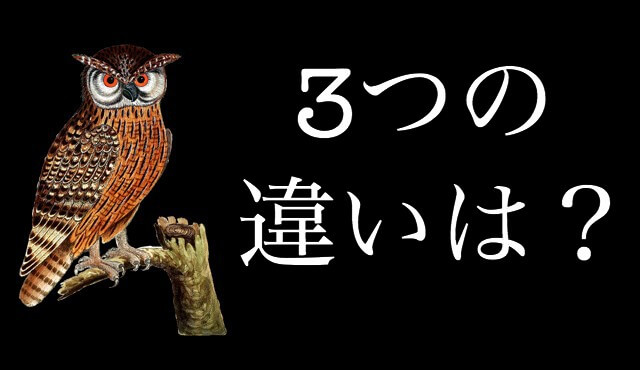
■ Phrasal Verb(句動詞)
- a phrase that consists of a verb with a preposition or adverb or both, the meaning of which is different from the meaning of its separate parts(Cambridge Dictionaryより引用)
- a phrase (such as take off or look down on) that combines a verb with a preposition or adverb or both and that functions as a verb whose meaning is different from the combined meanings of the individual words(Merriam-Webster.com Dictionaryより引用)
■ Idiom(イディオム)
- a group of words in a fixed order that have a particular meaning that is different from the meanings of each word on its own(Cambridge Dictionaryより引用)
- an expression in the usage of a language that is peculiar to itself either grammatically (such as no, it wasn’t me) or in having a meaning that cannot be derived from the conjoined meanings of its elements (such as ride herd on for “supervise”)(Merriam-Webster.com Dictionaryより引用)
■ Collocation(コロケーション)
- collocate a word or phrase that is often used with another word or phrase, in a way that sounds correct to people who have spoken the language all their lives, but might not be expected from the meaning(Cambridge Dictionaryより引用)
- a noticeable arrangement or conjoining of linguistic elements (such as words)(Merriam-Webster.com Dictionaryより引用)
↑「Cambridge Dictionary」と「Merriam Webster」での定義は、こんな感じ。以下、それぞれ詳しく見ていきましょう。
英語のPhrasal Verb(句動詞)とは?意味・他との違いは?
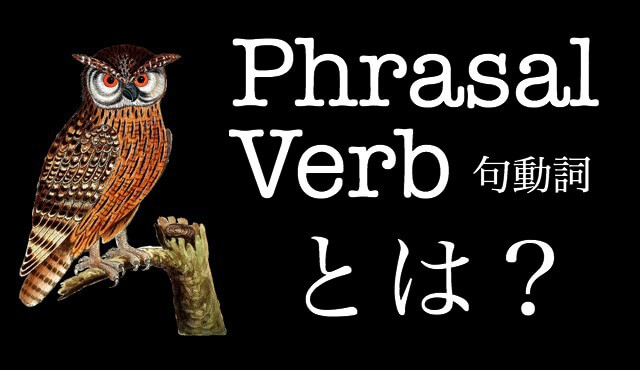
■ Phrasal Verb(句動詞)
- a phrase that consists of a verb with a preposition or adverb or both, the meaning of which is different from the meaning of its separate parts(Cambridge Dictionaryより引用)
- a phrase (such as take off or look down on) that combines a verb with a preposition or adverb or both and that functions as a verb whose meaning is different from the combined meanings of the individual words(Merriam-Webster.com Dictionaryより引用)
↑Phrasal Verb(句動詞)は「前置詞か副詞、またはその両方と動詞が、1つの動詞(句)として働くもの」であり「個々の語の意味とは違う意味になる」というような定義。
英語のPhrasal Verb(句動詞)の一覧(例)
- pay for
- work out
- make up for
- take off
- look down on
↑例としては、こういったものが挙げられています。

↑また、HACKengで作成している「コア・イメージで覚える」シリーズでは、基本動詞「get」の句動詞として「get up / down / on / in」などなどを紹介しましたが・・・・・
例えば「get in!」なら「乗れ!」「入れ!」だったり「get down!」なら「伏せろ!」だったり「get!」だけの意味とは違う、具体的な意味で使われるわけですね。
英語のIdiom(イディオム)とは?意味・他との違いは?
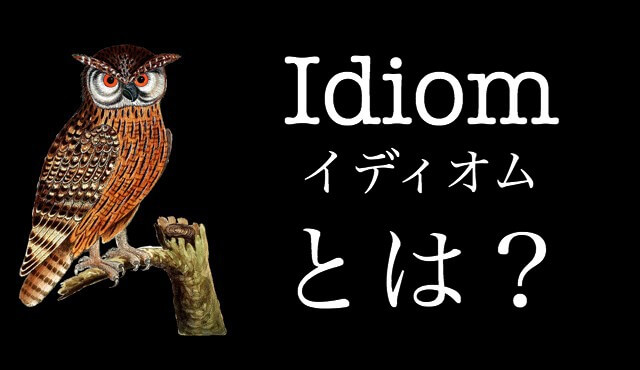
■ Idiom(イディオム)
- a group of words in a fixed order that have a particular meaning that is different from the meanings of each word on its own(Cambridge Dictionaryより引用)
- an expression in the usage of a language that is peculiar to itself either grammatically (such as no, it wasn’t me) or in having a meaning that cannot be derived from the conjoined meanings of its elements (such as ride herd on for “supervise”)(Merriam-Webster.com Dictionaryより引用)
↑まず「Idion(イディオム)」は「個々の語だけの意味とは違う意味になる」という点ではPhrasal Verb(句動詞)と同じだと言えますが、一方で「動詞+前置詞・副詞」という定義はナシ。
であると同時に(w)「Merriam Webster」の定義が特徴的ですね。2つの点で「peculiar(独特な)」表現がIdiom(イディオム)である、と。
1つ目が「grammatically」に独特な場合。例として「No, it wasn’t me.」が挙げられていますが・・・・ネイティブの友達に聞いてみたら「文法的に言ったら”I”がくるだろうソコに”me”がくるからかな?」って言ってました。たしかに!w
Idiom(イディオム)の意味は連想できない
そしてもう1つが「cannot be derived」の部分。「個々の語、それらを合わせた意味からは連想できない(得られない)」のが Idiom(イディオム)である、という定義です。
ところで「Merriam Webster」のほうはPhrasal Verb(句動詞)の定義と同じようで、違う言い回しになっているところが面白いですね。
■ Idiom(イディオム)
- an expression in the usage of a language that is peculiar to itself either grammatically (such as no, it wasn’t me) or in having a meaning that cannot be derived from the conjoined meanings of its elements (such as ride herd on for “supervise”)(Merriam-Webster.com Dictionaryより引用)
■ Phrasal Verb(句動詞)
- a phrase (such as take off or look down on) that combines a verb with a preposition or adverb or both and that functions as a verb whose meaning is different from the combined meanings of the individual words(Merriam-Webster.com Dictionaryより引用)
↑Idiom(イディオム)は「particular(特定の・特別な)」で処理されつつ「それぞれの語自身の意味とは違う意味になる」という定義で・・・・・・
逆に言えば、Phrasal Verb(句動詞)の意味は連想できる?
(以下、イギリス辞書とアメリカ辞書の違い!?コア理論前提ですし、深読しすぎでしょうがw)
逆に、Phrasal Verb(句動詞)のほうは「一緒になっていない時の、別れた状態の意味とは違う意味になる」と言っているのであって「1つ1つの語の意味から得られない、連想できない」とは言っていないという。
例えば「get in」の「乗る・入る」は「in(箱のような何かの中に入っている)」という状態を「get(手に入れる・到達する)」するんだ、と連想できます。
一方「Pain in the neck」というIdiom(イディオム)の「イライラさせる何か・悩みの種」という意味と、「neck(首)」や「pain(痛み)」という意味は、けっこう遠いですね。簡単に連想できるとは言えないでしょう。
英語のIdiom(イディオム)の一覧(例)
- We’re on the same page.(同じ考えを持っている)
- ride shotgun(警護する)
- shoot yourself in the foot(墓穴を掘る)
↑Idiom(イディオム)の例は、こんな感じ・・・・・というか、無数にあります。あらゆるイディオムが、イディオムです。(なんじゃそりゃw)
「Merriam Webster」の「The Makeup of Idioms」というコラム的な部分では「初めて聞いても、全く意味が分からないよね」みたいな話が書いてありますが、マジマジのマジですね。
つまり「出会ったら覚える」でOKということ!文脈・映像・イメージがあってこそですし、例は出すだけムダ!w 映画や海外ドラマを見まくるのがベスト・オブ・最善です!!
英語学習者に「え〜、このイディオム知らないの〜〜〜?wwww」なんて言ってくるネイティブは普通いません。いたとしても、嫌なヤツ以外の何モノでもないでしょう。(笑)
英語のCollocation(コロケーション・連結語句)とは?他との意味・違いは?
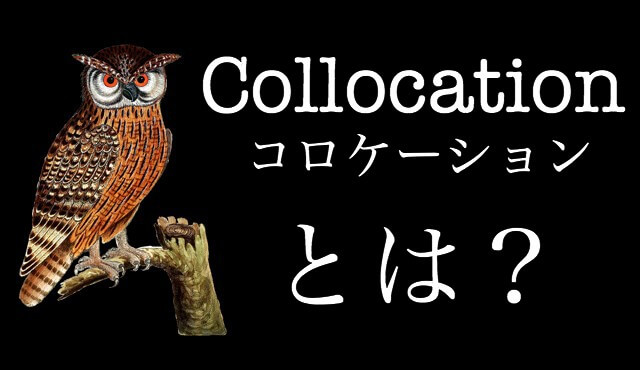
■ Collocation(コロケーション)
- collocate a word or phrase that is often used with another word or phrase, in a way that sounds correct to people who have spoken the language all their lives, but might not be expected from the meaning(Cambridge Dictionaryより引用)
- a noticeable arrangement or conjoining of linguistic elements (such as words)(Merriam-Webster.com Dictionaryより引用)
↑3つ目。Collocation(コロケーション)は・・・・要するに「よく使われる単語と単語のつながり」のことです。
英語のCollocation(コロケーション・連結語句)の一覧(例)
- hard frost
- heavy rain
- consult dictionary
- make the bed
- take a risk
- save time
- feel free
↑これは例を出したほうが早そうということで、コチラをチェックしてみましょう。どれも特別な意味というほどではありませんが「他の語では表現できない、ネイティブにとってのナチュラルさ」を持っている組み合わせなのです。
まあ、ナチュラルなのは「よく使われる」からだったりするわけですが、要するにそういうことです。
一番上の「hard frost」の場合「厳寒(厳しい霜)」になりますが「strong frost」とは言わず、それは「hard frost」のほうがナチュラルだからで、なぜナチュラルかと言うと〜〜〜・・・・(以下ループ)
みたいな。
・・・・はい。これも出会ったら覚える。というか、コロケーションなんて意識せずに、普通に覚えれば良いやつですねw
ついでに知りたい!Connotation(含意)とは?
■ Connotation(含意)
- a feeling or idea that is suggested by a particular word although it need not be a part of the word’s meaning, or something suggested by an object or situation:(Cambridge Dictionaryより引用)
- the suggesting of a meaning by a word apart from the thing it explicitly names or describes(Merriam-Webster.com Dictionaryより引用)
↑名前が似てますが、コノテーションは「言外の意味・含意」という意味のワードなので、別の概念です。チェック!
(まあ、日本人なら質問したくなるであろう「それが”””普通”””でしょ!?」みたいな話をしたい時は、普通に「imply」を使っとけば良かったりもしますがw)
日本語で考えてみる。「熟語・慣用句・連語」の違い
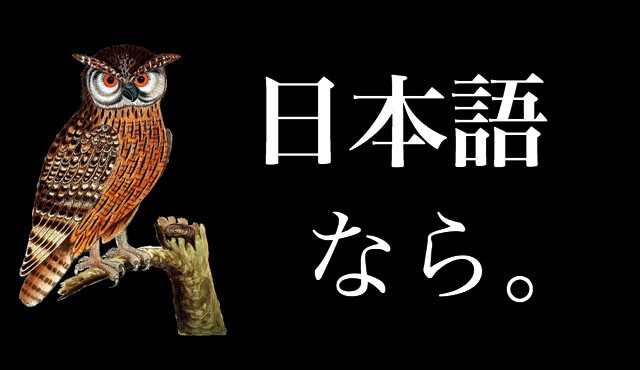
さて、英語の定義だけで考えれば分かりやすかったわけですが、ついでに日本語訳にあたるものの定義も見ておきましょう!
日本語で言う「熟語」とは?
- 熟語(goo辞書より引用)
- 2字またはそれ以上の漢字で書かれる漢語。熟字。「幸福」「美女」など。
- 二つまたはそれ以上の単語が合わさって、一つの単語として用いられるようになったもの。複合語。合成語。
- 慣用によって、特定の意味に用いられるようになった語句。慣用句。成句。イディオム。「気が抜ける」「油を売る」などの類。
↑どうやら、熟語の定義には「慣用句=イディオム」の定義が含まれているようです。
日本語で言う「慣用句」とは?
- 慣用句(goo辞書より引用)
- 二語以上の単語が結合して、それ全体である特定の意味を表すもの。「油を売る」「あごを出す」の類。イディオム。慣用語。
↑慣用句は・・・・・「慣用句=イディオム」の意味だけですね。
日本語で言う「連語」とは?
↑連語(連結語句)の定義は、まあコロケーション方向(比べられませんが)でしょうか。
以上。まとめると・・・・・
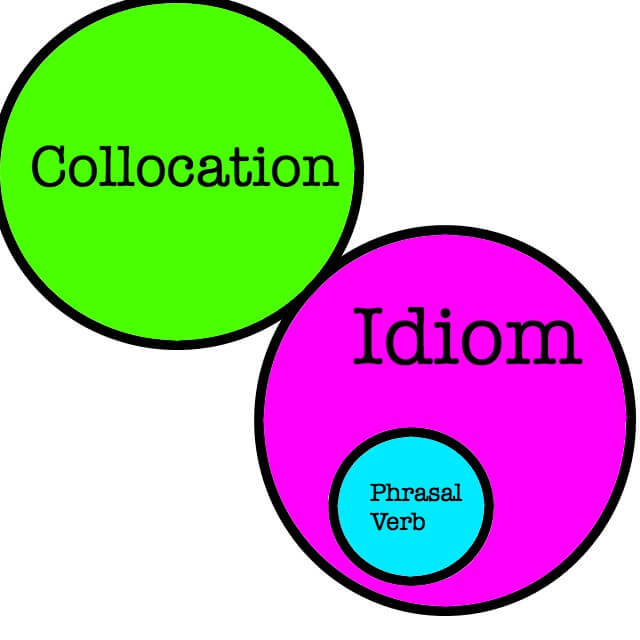
↑まあ、こんな感じで認識しておけば良いでしょう。(色とかに意味はありませんし、”fixed order”うんぬんとか、連想できるできないという点で、Phrasal VerbはIdiomと別だと考えても何の問題もないでしょう。)
これらはネイティブをネイティブたらしめると同時に、学習者にとって一番のハードルとなるポイントなわけですが、とにかく「出会ったら覚える」が正義ですね。
日本人だって「いや、そんな表現きいたことないわwwww」なんて慣用句、たくさんありますから。
おわり。
(^。^)
↑「あらゆる単語の図鑑があればな〜〜〜!!」という子羊へのオススメ。
↑いわゆる「「「文法」」」を日本語で、ザーッと網羅しとくならコレでOK。
(同じカテゴリの記事をもっと見るならコチラ)


辞書からの引用の詳細
本記事には、Cambridge DictionaryおよびMerriam-Webster.com Dictionaryからの、定義又は例文の引用が含まれます。
- “Phrasal verb.” Cambridge dictionary, Cambridge University Press, https://www.merriam-webster.com/dictionary/phrasal-verb. Accessed 1 Mar. 2019.
- “Idiom.” Cambridge dictionary, Cambridge University Press, https://www.merriam-webster.com/dictionary/idiom. Accessed 1 Mar. 2019.
- “Collocation.” Cambridge dictionary, Cambridge University Press, https://www.merriam-webster.com/dictionary/collocation. Accessed 1 Mar. 2019.
- “Connotation.” Cambridge dictionary, Cambridge University Press, https://www.merriam-webster.com/dictionary/connotation. Accessed 1 Mar. 2019.
- “Phrasal verb.” Merriam-Webster.com Dictionary, Merriam-Webster, https://www.merriam-webster.com/dictionary/phrasal%20verb. Accessed 1 Mar. 2019.
- “Idiom.” Merriam-Webster.com Dictionary, Merriam-Webster, https://www.merriam-webster.com/dictionary/idiom. Accessed 1 Mar. 2019.
- “Collocation.” Merriam-Webster.com Dictionary, Merriam-Webster, https://www.merriam-webster.com/dictionary/collocation. Accessed 1 Mar. 2019.
- “Connotation.” Merriam-Webster.com Dictionary, Merriam-Webster, https://www.merriam-webster.com/dictionary/connotation. Accessed 1 Mar. 2019.
引用箇所では省略して、辞書名をアンカーテキストとした該当URLへのリンクのみを明示しています。
